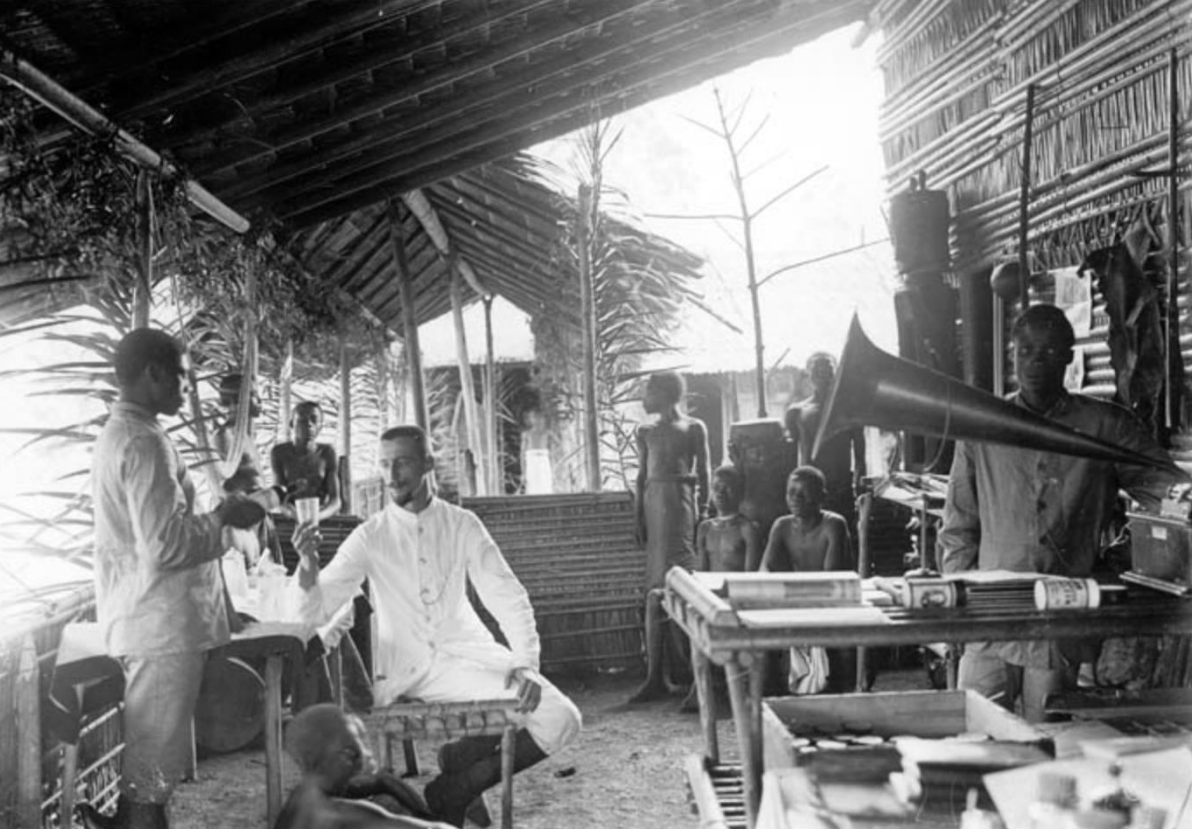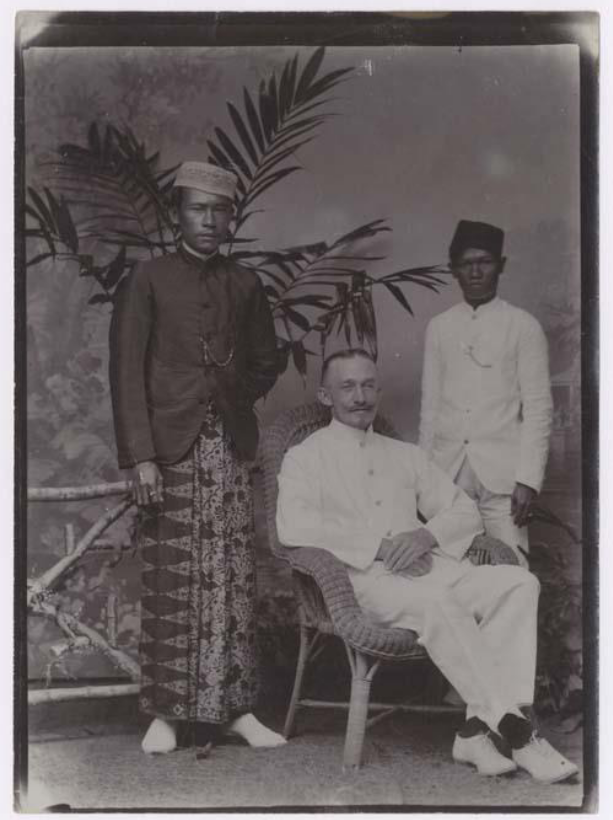The Leibniz Institute for Regional Geography (IfL) in Leipzig, Germany, invites interested candidates to submit applications for its short-term Archival Photographs Stipend, which aims to deepen international cooperation concerning colonial photographs held in the Archive for Geography. The Archive is the largest of its kind in the German-speaking countries and holds extensive documents and photographs relevant for postcolonial research. This call is for work with either the Tessmann or Volz photograph collections.
The IfL conducts basic research on the regional geography of Germany and Europe, and communicates its research findings to a wider public. Its researchers develop interdisciplinary perspectives on socio-spatial developments in a globalised society increasingly characterised by differences, diversity and complexity. The IfL fellowship progamme includes both institute-wide and project-specific calls published at regular intervals.
Goals of the Archival Photographs Stipend
The Archival Photographs Stipend aims to initiate and deepen international collaboration concerning critical perspectives on colonial photographs. We hope to learn more about ethical and historical issues affecting the cataloguing and possible digitisation of the collections, and to explore possibilities for collaborative research and/or outreach activities. Within one month of completing their visit, stipend recipients are expected to publish an assessment of the collection, for example on the IfL Blog, making any recommendations for the treatment of the collection and highlighting possible opportunities for future research with the collection. We thus hope to make the collections more visible for research and cultural heritage work.
We invite applications from researchers with deep ties to and expertise in the regions of the photographs’ origins for short-term visits to work with specific collections. These photographs have yet to be cataloged and digitized, and are currently only viewable on site in Leipzig. During their visit to the IfL, stipend holders are welcome to engage with researchers working on Visual Regional Geographies and other research topics, to participate in events, and, if they wish, to present their work.
Type and extent of funding
The stipend supports 4 – 8 weeks of exploratory work with the original collections at the Archive for Geography, within the framework of an applicant’s research focus, between 1 November 2024 and 31 October 2025. Individual scholarship holders receive a monthly stipend of Euro 1,750 plus reimbursement of economy class travel to and from their place of residence to Leipzig, as well as reimbursement of a “Deutschland Ticket” for public transportation in and around Leipzig (please clarify documentation requirements in advance of booking any tickets).
Collections
Currently we invite applications to work with one of two collections:
A) Günther Tessmann photo collection
Günther Tessmann (1884–1969) began his career in colonial agriculture and gradually became a scientific researcher. From his stays in Cameroon— as leader of the Lübeck Pangwe Expedition 1907–09 and leader of the Ssanga-Lobaje-Reichsexpedition 1913–14 —he brought back extensive collections, including ethnographies, very early sound recordings and numerous photographs. Large parts of the photo collection are held today in the Archive for Geography, especially from his second Cameroon expedition, and possibly from his later trips to Guinea, Peru and Brazil. The pictures show many geographical and ethnographic motifs, including vegetation and agriculture, colonial everyday practices and the cultural encounters between the German colonists and the local residents.

Nkolentangan, Weihnachten 1907, sitzend G. Tessmann. Signatur: Af027-0044
Only very few photos from this collection of around 500 paper prints have been digitised and cataloged; intensive use is only possible on site. This image collection provides a unique pool of sources for reconstructing colonial research history, but essential provenance and context research are still needed. In addition to the image collection, the Archive for Geography holds a partial collection of Tessmann’s papers (see Tessmann finding guide); the ethnographic collection and another part of the written records can be found in the Lübeck Ethnological Collection. Tessmann’s travel diaries are available online via Sammlung Kulturen der Welt.
B) Wilhelm Volz photo collection
Wilhelm Volz (1870–1958) belonged to a generation of German university geographers whose careers involved extensive field research trips. Volz undertook three major research trips to the Dutch colonies in the East Indies between 1897 and 1906, particularly to the islands of Sumatra, Java and Borneo. He amassed an extensive collection of photographs that are now held in the Archive for Geography alongside his papers (see Volz finding guide). We do not currently have information about the photographers or specific circumstances of the photography. The motifs are very diverse, concerning geographical, ethnographic or botanical content, and depicting colonial contexts. The images, in addition to being used in his scientific works, may also have played a role in Volz’s popular books (esp. Im Dämmer des Rimba, 1921 and Tiger hilf mir!, 1924) and lectures; interest on the part of the those who commissioned his travels is also conceivable. The whereabouts of the negatives are unknown.

Wilhelm Volz in Sumatra, ca. 1905, Signatur Por-Volz21
The photo collection in the Archive for Geography (approx. 20 boxes with several hundred individual images on paper, mounted on cardboard and with little metadata) is not yet cataloged and can only be used on site, but offers great potential for a photo-historical, research-historical, postcolonial or regional-historical analysis of the Malay Archipelago in present-day Indonesia, especially North Sumatra. Together with the written records in the Volz papers and the printed sources, a rich corpus of materials is available for future international and interdisciplinary projects.
How to apply
Researchers and culture professionals working in any field relevant to the collection in question are eligible to apply. Applicants may apply individually as researchers or in teams of one researcher plus one culture professional (e.g., researcher and artist; researcher and curator). An ability to read German and decipher handwriting is advantageous, but not required.
Please e-mail your application as a single PDF document with the subject line “Archival photographs stipend, Tessmann” or “Archival photographs stipend, Volz” to personal@leibniz-ifl.de. Applications are to be submitted in English, and must include the following:
- Letter of intent describing your connection to and expertise in the region(s) of the photographs’ origin, and stating the preferred period for a visit between 1 November 2024 and 31 October 2025, noting any flexibility;
- 2-page proposal describing your research and/or cultural work and your interest in the collection, including any professional organizations or institutions in your network that may be interested in collaboration concerning the collections;
- Curriculum vitae for each applicant.
Please do not include a photograph in your application.
The IfL is committed to professional equality for all genders. We value diversity and welcome all applications regardless of gender, nationality, ethnic or social origin, religion, disability, age or sexual orientation. Severely disabled candidates and candidates of equal ability will be given preferential consideration based on equal aptitude, professional achievement and qualifications.
Contact Dr Bruno Schelhaas | b_schelhaas@leibniz-ifl.de
Deadline 22 July 2024
For questions concerning formal matters, please contact personal@leibniz-ifl.de
Stipends will be announced by the end of August 2024.
The personal data collected by the IfL regarding your application and its evaluation will be processed exclusively for the purposes of the application procedure on the basis of contractual measures in accordance with Art. 6 para. 1 b DS-GVO. The data will not be transferred to third parties. Recipients are the responsible employees, the works council and, if applicable, the inclusion officer or contact person for people with impairments and the equal opportunity officer of the IfL. We delete the applicant data you have provided us with 6 months after the application process has been completed, i.e. after the advertised position has been filled or after we have decided not to fill the position yet. For questions regarding data protection law and to exercise your rights, please contact personal@leibniz-ifl.de. You have the right to lodge a complaint with the supervisory authority. Interview costs will not be reimbursed.

